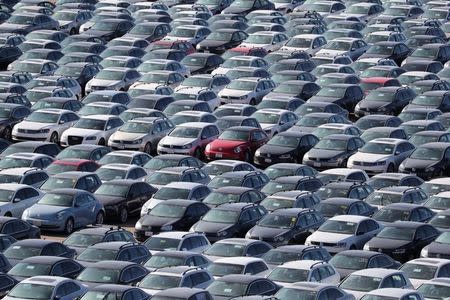California regulator sees 'window' for deal on fuel economy rules

By David Shepardson NEW YORK (Reuters) - California is ready to work with major automakers on revisions to greenhouse gas emission vehicle rules through 2025 and sees a "window" for a deal in the coming months, the state’s top clean air regulator told Reuters on Monday. Air Resources Board chair Mary Nichols said in an interview on Monday that agreements with the federal government or automakers could be struck in the coming months as the state pursues its own changes to fuel economy standards through 2025. "If the car companies want to come and talk to us, they will," Nichols said. California's effort could potentially putting pressure on the Trump administration to back a compromise instead of its own plans to rollback federal vehicle emissions rules. "I feel like there is enough at stake here for the (auto) industry that we may be able to get the federal government to back off on the extreme proposals that they have made," Nichols said. The U.S. Transportation Department in May submitted a proposal to the White House recommending freezing fuel economy standards at 2020 levels through 2026 and would bar California from setting stricter standards than the federal government. That proposal, developed in tandem with the Environmental Protection Agency, is expected to be made public as early as next week. California has vowed to fight a federal freeze in court, which could leave automakers in regulatory limbo for years as litigation grinds through the courts. "There is also the possibility of this all getting settled amicably and there is really a window of time to do that," Nichols said. She suggested the time frame between August, when the state proposes changes to its rules, and sometime in September, when the federal government closes a 60-day public comment period on its proposal. The current federal rules, negotiated with automakers by former President Barack Obama’s administration in 2011, aimed to double average fleet-wide fuel efficiency to about 50 miles per gallon by 2025 and they included significant annual increases in automaker requirements. Automakers now want changes, citing lower gasoline prices and a shift in consumer preferences to larger vehicles. California agreed to adopt the Obama administration's fuel rules in 2011, but can insist automakers follow tougher rules if the Trump administration weakens requirements, Nichols said. Nichols said California plans to propose changes to its rules through 2025 in mid-August and the state may propose ways to make it easier for automakers to comply. Nichols said the state has been at "a bit of an impasse" with the Trump administration, which has not held substantive talks with California, she said. California and 16 other states in May filed suit to challenge the administration's decision to reconsider the vehicle efficiency rules. Gloria Bergquist, a spokesman for the Alliance of Automobile Manufacturers, a group representing General Motors Co, Volkswagen AG , Toyota Motor Corp and others, said Monday "automakers believe one national program is better for our customers, who don’t want to face higher vehicle prices from redundant, duplicative government regulations, so we urge the federal government and California to come to an agreement." Nichols said automakers should get involved if they want to strike a deal to avoid years of litigation. "The non-U.S. based companies are mostly hiding under their desks at the moment waiting for something to happen," Nichols said. Federal regulators have declined to comment on their proposal until it is made public. The U.S. Transportation Department and Environmental Protection Agency did not immediately comment. (Reporting by David Shepardson in New York; editing by Clive McKeef)
